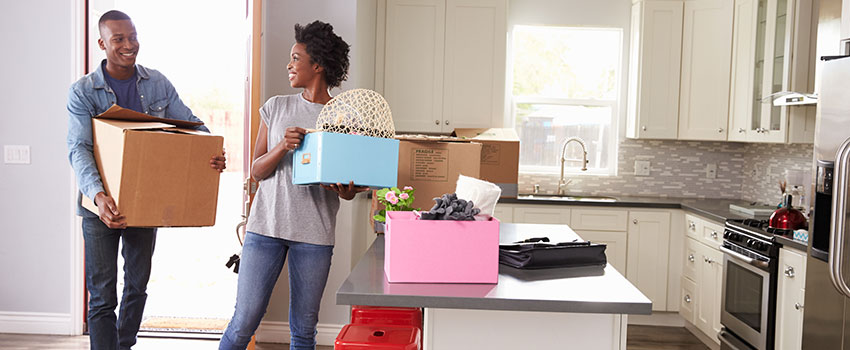Budgeting After Buying a House | Journey Home Lending

Buying a home comes with a lot of planning, paperwork and budgeting. You likely spent more of the homebuying process looking at things on paper rather than dreaming about life in a new house.
Once you are in your new home, the last thing you might want to do is think about your budget again—but the expenses don’t stop once you have the keys in your hand. After the paperwork is signed, it is a good idea to take a look at your budget with fresh eyes. Instead of thinking about down payments and fees, now you can start really looking at making your house a home.
Look Back to Move Forward
While you were in the midst of seeking out the home of your dreams, there is a good possibility you pushed aside some of your other expenses. Perhaps you deferred loan payments or canceled subscriptions to cut costs.
Whatever the case may be, now that you are in your home and the initial costs of homebuying have begun to settle, reconsider those expenses you have set aside.
While you may not want to immediately restart any deferred payments or canceled plans, you need to begin working them into your budget again. Take a look at the terms of your deferment, and pick a date that restarts your payments with the least amount of interest or other penalties accrued. Adjust other expenses in order to allow for these costs to be back in your budget. And if you have lived without all those subscriptions for this long, you don’t need them!
Along with looking back at the expenses you set aside, look forward to upcoming expenses. Making a large purchase immediately after buying a house is not ideal, but if you know there is a trip upcoming or the kids have a sports season starting soon, put these expenses into your budget.
Prepare for Updates
Adjusting your budget to include those old and new expenses not only gets you back on track, it can also help you see what kind of budget you can build for your new home. Even a turnkey home may not have everything you need or desire. It is ideal to try and set aside 10% of your budget for home updates and repairs.
Unless repairs are needed in order to make your home livable, you may need to make these more of a goal than an immediate expense. Including this in your budget can help you create savings so that you aren’t adding another long-term payment to your bank account.
You should also plan to update your homeowners insurance. Even if you moved into a smaller home, you need to work through a new plan. New homes come with new risks, and you want to make sure you are completely covered.
Mostly, give yourself some grace. The homebuying process is a long and challenging one, and although the reward is great, when you spend a lot of time looking at numbers, it can be easy to forget why you started the process in the first place.
Work on your budget, cut extra costs where possible and save as much as you can. Things will fall into place quickly, and you will be able to spend your time enjoying your home!
We can make the homebuying process simple, and the numbers involved easy. Contact us to start your journey.
